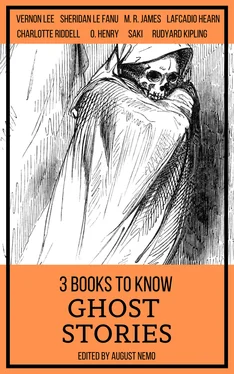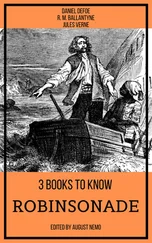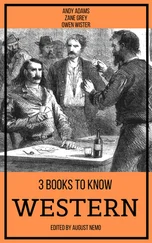1 ...6 7 8 10 11 12 ...18 I was very uneasy in my mind after that. I durst never leave Miss Rosamond, night or day, for fear lest she might slip off again, after some fancy or other; and all the more, because I thought I could make out that Miss Furnivall was crazy, from their odd ways about her; and I was afraid lest something of the same kind (which might be in the family, you know) hung over my darling. And the great frost never ceased all this time; and, whenever it was a more stormy night than usual, between the gusts, and through the wind, we heard the old lord playing on the great organ. But, old lord, or not, wherever Miss Rosamond went, there I followed; for my love for her, pretty, helpless orphan, was stronger than my fear for the grand and terrible sound. Besides, it rested with me to keep her cheerful and merry, as beseemed her age. So we played together, and wandered together, here and there, and everywhere; for I never dared to lose sight of her again in that large and rambling house. And so it happened, that one afternoon, not long before Christmas-day, we were playing together on the billiard-table in the great hall (not that we knew the right way of playing, but she liked to roll the smooth ivory balls with her pretty hands, and I liked to do whatever she did); and, by-and-by, without our noticing it, it grew dusk indoors, though it was still light in the open air, and I was thinking of taking her back into the nursery, when, all of a sudden, she cried out,
‘Look, Hester! look! there is my poor little girl out in the snow!’
I turned towards the long narrow windows, and there, sure enough, I saw a little girl, less than my Miss Rosamond — dressed all unfit to be out-of-doors such a bitter night — crying, and beating against the window-panes, as if she wanted to be let in. She seemed to sob and wail, till Miss Rosamond could bear it no longer, and was flying to the door to open it, when, all of a sudden, and close upon us, the great organ pealed out so loud and thundering, it fairly made me tremble; and all the more, when I remembered me that, even in the stillness of that dead-cold weather, I had heard no sound of little battering hands upon the windowglass, although the phantom child had seemed to put forth all its force; and, although I had seen it wail and cry, no faintest touch of sound had fallen upon my ears. Whether I remembered all this at the very moment, I do not know; the great organ sound had so stunned me into terror; but this I know, I caught up Miss Rosamond before she got the hall-door opened, and clutched her, and carried her away, kicking and screaming, into the large, bright kitchen, where Dorothy and Agnes were busy with their mince-pies.
‘What is the matter with my sweet one?’ cried Dorothy, as I bore in Miss Rosamond, who was sobbing as if her heart would break.
‘She won’t let me open the door for my little girl to come in; and she’ll die if she is out on the Fells all night. Cruel, naughty Hester,’ she said, slapping me; but she might have struck harder, for I had seen a look of ghastly terror on Dorothy’s face, which made my very blood run cold.
‘Shut the back-kitchen door fast, and bolt it well,’ said she to Agnes. She said no more; she gave me raisins and almonds to quiet Miss Rosamond; but she sobbed about the little girl in the snow, and would not touch any of the good things. I was thankful when she cried herself to sleep in bed. Then I stole down to the kitchen, and told Dorothy I had made up my mind. I would carry my darling back to my father’s house in Applethwaite; where, if we lived humbly, we lived at peace. I said I had been frightened enough with the old lord’s organ-playing; but now that I had seen for myself this little moaning child, all decked out as no child in the neighbourhood could be, beating and battering to get in, yet always without any sound or noise — with the dark wound on its right shoulder; and that Miss Rosamond had known it again for the phantom that had nearly lured her to her death (which Dorothy knew was true); I would stand it no longer.
I saw Dorothy change colour once or twice. When I had done, she told me she did not think I could take Miss Rosamond with me, for that she was my lord’s ward, and I had no right over her; and she asked me would I leave the child that I was so fond of just for sounds and sights that could do me no harm; and that they had all had to get used to in their turns? I was all in a hot, trembling passion; and I said it was very well for her to talk; that knew what these sights and noises betokened, and that had, perhaps, had something to do with the spectre child while it was alive. And I taunted her so, that she told me all she knew at last; and then I wished I had never been told, for it only made me more afraid than ever.
She said she had heard the tale from old neighbours that were alive when she was first married; when folks used to come to the hall sometimes, before it had got such a bad name on the country side: it might not be true, or it might, what she had been told.
The old lord was Miss Furnivall’s father — Miss Grace, as Dorothy called her, for Miss Maude was the elder, and Miss Furnivall by rights. The old lord was eaten up with pride. Such a proud man was never seen or heard of; and his daughters were like him. No one was good enough to wed them, although they had choice enough; for they were the great beauties of their day, as I had seen by their portraits, where they hung in the state drawing-room. But, as the old saying is, ‘Pride will have a fall;’ and these two haughty beauties fell in love with the same man, and he no better than a foreign musician, whom their father had down from London to play music with him at the Manor House. For, above all things, next to his pride, the old lord loved music. He could play on nearly every instrument that ever was heard of, and it was a strange thing it did not soften him; but he was a fierce dour old man, and had broken his poor wife’s heart with his cruelty, they said. He was mad after music, and would pay any money for it. So he got this foreigner to come; who made such beautiful music, that they said the very birds on the trees stopped their singing to listen. And, by degrees, this foreign gentleman got such a hold over the old lord, that nothing would serve him but that he must come every year; and it was he that had the great organ brought from Holland, and built up in the hall, where it stood now. He taught the old lord to play on it; but many and many a time, when Lord Furnivall was thinking of nothing but his fine organ, and his finer music, the dark foreigner was walking abroad in the woods with one of the young ladies; now Miss Maude, and then Miss Grace.
Miss Maude won the day and carried off the prize, such as it was; and he and she were married, all unknown to any one; and before he made his next yearly visit, she had been confined of a little girl at a farm-house on the Moors, while her father and Miss Grace thought she was away at Doncaster Races. But though she was a wife and a mother, she was not a bit softened, but as haughty and as passionate as ever; and perhaps more so, for she was jealous of Miss Grace, to whom her foreign husband paid a deal of court — by way of blinding her — as he told his wife. But Miss Grace triumphed over Miss Maude, and Miss Maude grew fiercer and fiercer, both with her husband and with her sister; and the former — who could easily shake off what was disagreeable, and hide himself in foreign countries — went away a month before his usual time that summer, and half-threatened that he would never come back again. Meanwhile, the little girl was left at the farm-house, and her mother used to have her horse saddled and gallop wildly over the hills to see her once every week, at the very least; for where she loved she loved, and where she hated she hated. And the old lord went on playing — playing on his organ; and the servants thought the sweet music he made had soothed down his awful temper, of which (Dorothy said) some terrible tales could be told. He grew infirm too, and had to walk with a crutch; and his son — that was the present Lord Furnivall’s father — was with the army in America, and the other son at sea; so Miss Maude had it pretty much her own way, and she and Miss Grace grew colder and bitterer to each other every day; till at last they hardly ever spoke, except when the old lord was by. The foreign musician came again the next summer, but it was for the last time; for they led him such a life with their jealousy and their passions, that he grew weary, and went away, and never was heard of again. And Miss Maude, who had always meant to have her marriage acknowledged when her father should be dead, was left now a deserted wife, whom nobody knew to have been married, with a child that she dared not own, although she loved it to distraction; living with a father whom she feared, and a sister whom she hated. When the next summer passed over, and the dark foreigner never came, both Miss Maude and Miss Grace grew gloomy and sad; they had a haggard look about them, though they looked handsome as ever. But, by-and-by, Maude brightened; for her father grew more and more infirm, and more than ever carried away by his music; and she and Miss Grace lived almost entirely apart, having separate rooms, the one on the west side, Miss Maude on the east — those very rooms which were now shut up. So she thought she might have her little girl with her, and no one need ever know except those who dared not speak about it, and were bound to believe that it was, as she said, a cottager’s child she had taken a fancy to. All this, Dorothy said, was pretty well known; but what came afterwards no one knew, except Miss Grace and Mrs. Stark, who was even then her maid, and much more of a friend to her than ever her sister had been. But the servants supposed, from words that were dropped, that Miss Maude had triumphed over Miss Grace, and told her that all the time the dark foreigner had been mocking her with pretended love — he was her own husband. The colour left Miss Grace’s cheek and lips that very day for ever, and she was heard to say many a time that sooner or later she would have her revenge; and Mrs. Stark was for ever spying about the east rooms.
Читать дальше












